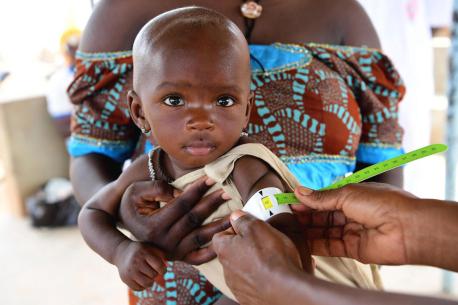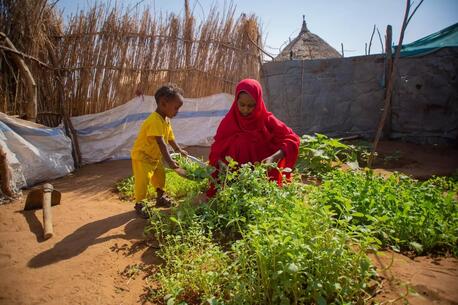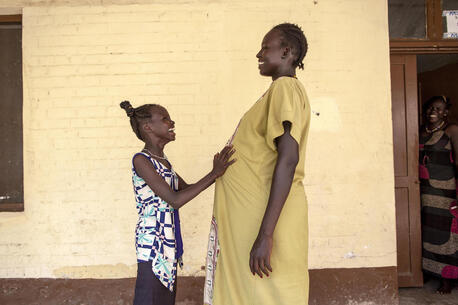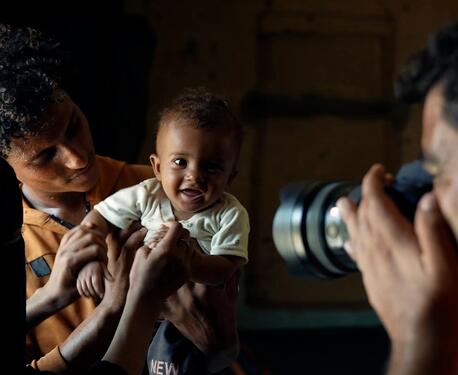
UNICEF Responds as War in Ukraine Fuels Food Crises Across Regions
Disruptions in global markets caused by the war in Ukraine have sent food prices soaring, heightening the risks of childhood malnutrition across two continents.
Most affected are countries in Africa and the Middle East that rely on food imports — Ukraine is a major grain exporter — and those already facing food insecurity due to other crises, compounded by two long years of the COVID-19 pandemic and related economic impacts.
During a recent UN Security Council briefing, David Beasley, Executive Director of the UN's World Food Program, a UNICEF partner, warned that Ukraine had turned “from a breadbasket to a bread line."
Joyce Msuya, the UN's Assistant Secretary-General for Humanitarian Affairs and Deputy Emergency Relief Coordinator, noted that the conflict threatened to exacerbate other crises — such as those in Afghanistan, Yemen and the Horn of Africa — as those countries and regions are already grappling with food insecurity and economic fragility. The rising prices of food, fuel and fertilizer will hit hard now and in the coming seasons, she said, adding: “Our aim is simple: silence the guns and save lives.”
Childhood malnutrition is already a chronic problem in Yemen, Syria, Lebanon and Sudan due to armed conflicts and other humanitarian crises. UNICEF estimates that a little more than one-third of young children in the Middle East and North Africa region (36 percent) consume enough nutrients for healthy development. Nearly 1 in 5 children are stunted, which means they are too short for their age, and could suffer severe irreversible physical and cognitive damage.
With the threat of large-scale loss of life rising daily, UNICEF is appealing for immediate support to ramp up nutrition programs for the most vulnerable. Working with partners, UNICEF is looking to consolidate ongoing efforts to deliver and scale up prevention, early detection and lifesaving treatment of childhood malnutrition to address the needs of millions of children and women. "This is critical to prevent a massive malnutrition crisis," said Adele Khodr, UNICEF MENA Regional Director.
Preventive nutrition services include micronutrient supplements, growth monitoring and counseling, and support on breastfeeding and age-appropriate complementary feeding. These and other UNICEF nutrition programs reach millions of children annually.
“We stand ready to facilitate the revamping of the nutrition response in the region to further strengthen links with agriculture, social protection, education and water and sanitation sectors to reach more children in need," said Khodr.
Support UNICEF's emergency action to address this once-in-a generation humanitarian crisis. Donate today.
Top photo: A mother with her baby at a UNICEF-supported health center in Fada, in eastern Burkina Faso, where children are screened for malnutrition and vaccinated. Burkina Faso is one of many countries in Africa still reeling from the impacts of COVID-19 as well as increasing food insecurity exacerbated by the effects of the war in Ukraine on supply chains and global markets. UNICEF projects that as many as 700,000 children in Burkina Faso will suffer from wasting in 2022. © UNICEF/UN0487651/Dejongh
With the threat of large-scale loss of life rising daily, UNICEF is appealing for immediate support to ramp up nutrition programs for the most vulnerable. [VIDEO]


